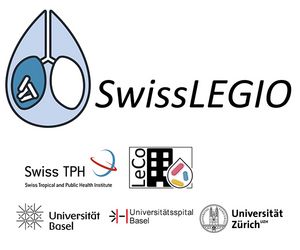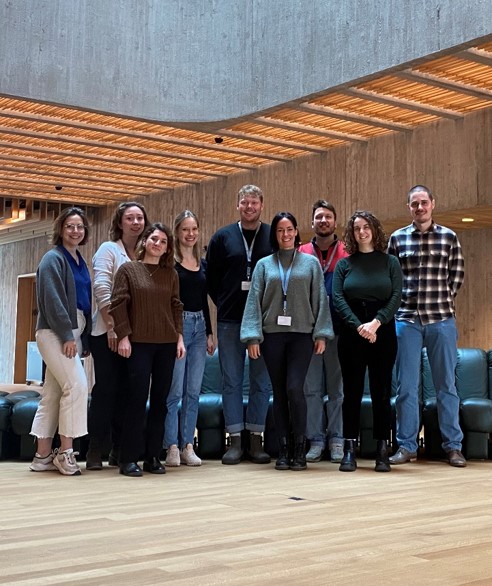Information for Participants
What is the study about?
Legionnaires' disease (LD) is a severe form of pneumonia that is caused by Legionella bacteria. Infections with this bacterium are notifiable and must be reported by the physician to the Federal Office of Public Health (FOPH). The number of these notifications has more than doubled between 2014 and 2021. Unfortunately, it is unknown why more and more people are contracting LD and where they get infected.
Our study team aims to better understand possible risk factors and sources of infection for Legionnaires' disease. Infectious diseases (such as COVID-19) may lead to lasting health consequences and long-term impacts on the well-being of patients. We do not know if and to what extent this is also observed in patients with Legionnaires' disease and other bacterial pneumonia. We would therefore also like to learn more about the individual disease experience and recovery of Legionnaires' disease patients and other bacterial pneumonia patients.
Frequently Asked Questions
A case-control study starts with the identification of persons with the disease interest (“cases”) and a suitable control group of persons without the disease (“controls” ). In this study Legionnaires’ disease patients are our cases, healthy participants from the general population are our control. By comparing cases and controls we aim to identify risk factors that may be associated with Legionnaires’ disease.
We are happy to receive your questions about the SwissLEGIO study! If you have any questions about our study, please contact our study team by e-mail (info.swisslegio@swisstph.ch) or by phone (+41 61 284 88 50). We look forward to hearing from you.
We are currently finalising our analysis and will contact you by email or postal mail as soon as all the results are ready to be shared. In the meantime, the FOPH and the media have shared some preliminary findings (see links below).
News and Reports


Antonia Eichelberg (Eawag), Natascha Roser, Mariasole Villa, Melina Bigler, Manuel Wiederkehr, Chiara Strozzi, Dominik Schnyder, Malina Vaucher, Gabriel Escher, Daniel Mäusezahl (not in picture)